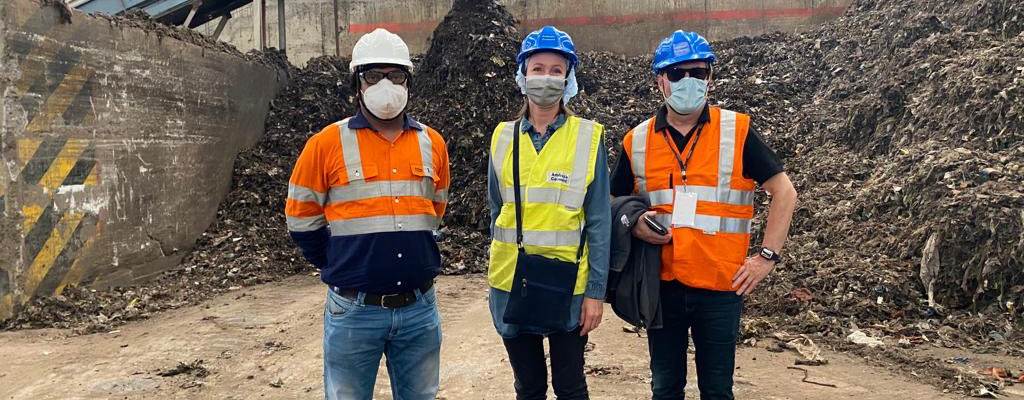Substitution of coal with waste in cement manufacturing is called co-processing. India has a big potential to widely adopt co-processing of waste. By introducing co-processing as an alternative use of fossil fuel and virgin raw materials, the cement plants can replace coal and also reduce CO2 emissions. In Norway, municipal waste and plastic waste are used in cement plants, for co-processing. The rate of substitution of coal is called as TSR (Thermal Substitution Rate).
SINTEF is a leading technical institution in Norway that has good expertise in co-processing. With the support of the Norwegian Embassy, SINTEF supports the Indian cement industry to take up co-processing. The Embassy delegation made a field visit to the Ambuja Cement Plant (ACL) in Bhatapara in the state of Chhattisgarh, to witness co-processing.
The plant's increased treatment capacity for hazardous, industrial wastes and non-recyclable plastic waste is truly impressive. Waste which has good calorific value is sourced from as far as Noida, Nagpur and Kolkata. ACL is co-processing 7 tonnes of waste every day and has achieved a TSR of 7% in all its plants.
Indian Cement Industry is the second largest in world with 294 million tonnes in 2021 and uses more than 50 million tonnes of coal/year. Average TSR for large cement companies is less than 5 % today, while Norway has reached 70% TSR. 25 % TSR might be achievable in the Indian Cement Industry by 2025.
Norway’s ambition is to play a pioneering role in the development of a green, circular economy that makes more efficient use of resources. The Embassy has been supporting SINTEF to build capacity of Indian institutions through technical cooperation, and SINTEF is collaborating with leading companies, like Ambuja Cement Ltd. The circular economy approach enables sustainable waste management, resource conservation and reduction of GHGs in India.
The visit to Bhatapara Cement, is an inspiring example, of how co-processing in cement plants can substitute coal, making use of unrecyclable waste and also reduce CO2 emissions.
